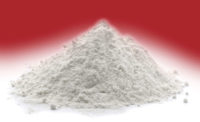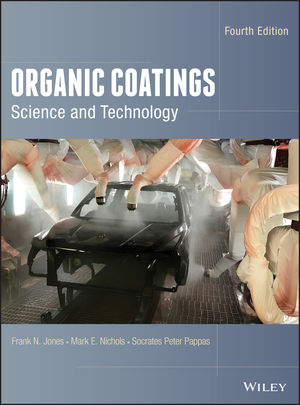A New Dominant Force in China’s TiO2 Market?




On April 7, the rumor mill in China’s titanium dioxide industry went into overdrive as Henan Billions suspended trading on its securities on the Shenzhen Stock Exchange. Speculation that a major deal was underfoot were confirmed on May 5 when the company announced its plans to merge with Lomon.
On June 5, Henan Billions successfully acquired a 100% equity stake in Lomon for USD 1.47 billion (RMB 9 billion). The deal makes Henan Billions the largest TiO2 manufacturer in Asia and the fourth largest worldwide.
Details of how the new company will be structured have not yet been released. One option is that Lomon will be directly integrated into Henan Billions, which would boost the company’s operating capital. However, it is likely that Henan Billions may allow Lomon to continue to operate as a separate brand, as in the case of Huntsman and Sachtleben.
Merger Impact
News of the merger will have been greeted with grim faces in the boardrooms of Henan Billions’ domestic competitors. The deal will not only make Henan Billions by far the largest TiO2 manufacturer in China with an estimated production capacity of 520,000 t/a – 17.45% of the national total and more than double that of its closest rival – but it will also help the company become more competitive in a number of other ways.
Production
By merging with Lomon, Henan Billions will gain access to the company’s integrated titanium ore mining and processing operation. This integrated business structure was one of the cornerstones of Lomon’s earlier success, guaranteeing a steady stream of high-quality raw materials and largely shielding the company from interruptions in supply or price increases. Lomon’s large production capacity of 300,000 t/a also allowed the company to gain cost advantages through economies of scale.
After the merger, Henan Billions will benefit from a more secure, higher-quality raw material supply, and the new company will be able to use this supply more efficiently to reduce production costs.
Product Range and Quality
From conversation with insiders in China’s TiO2 industry, it is clear that Henan Billions’ products, including its R699 TiO2, are not regarded as high quality, and the company heavily depends on its price advantage in the low- to mid-end section of the market. On the other hand, Lomon’s R996 is highly respected within the domestic market, and the company’s sulfate process technology is the most advanced in China.
The two companies’ product lines, therefore, appear perfectly matched and, once the merger has been completed, Henan Billions will have products targeted at the high-, mid- and low-end market segments.
Moreover, Lomon’s large R&D resources will help Henan Billions improve the quality of its products. Henan Billions is one of the few producers in China that has its own chloride process production line, but the company has yet to release its chloride process products into the market as the production quality in this facility is still unstable. Lomon’s know-how should help Henan Billions accelerate its development of chloride process technology, as well as refine its sulfate process facilities.
Exports
With China’s TiO2 market still bloated with overcapacity, and gross profit margins among China’s listed TiO2 producers averaging just 16% last year, Henan Billions’ success in the export market has given the company a crucial strategic advantage.
A 52% year-on-year increase in rutile TiO2 exports was a big factor in its good performance in 2014, when the company recorded a 19% growth in revenues and net profits of USD 10.46 million (a 173% increase on 2013).
Prices are now rising slowly, but until a major industry consolidation takes place, profit margins in the domestic market are likely to remain slender and the export market will remain a particularly important battleground for China’s leading TiO2 producers.
Lomon and Henan Billions together accounted for over a third of China’s total TiO2 exports in 2014, exporting 134,900 tonnes and 88,900 tonnes respectively, so Henan Billions will hold a dominant position in this growing market in the wake of the merger. It will also be able to integrate Lomon’s strong marketing channels and brand recognition, which will provide a big boost to the company’s marketing efforts overseas.
Pressure for Competitors
Henan Billions’ competitors will be under pressure to respond with their own mergers and acquisitions to remain competitive.
Jilin Gpro announced a trading suspension that took effect on May 18. CCM believes that this could be a signal that the company is expecting to confirm a big M&A deal in the near future, with Jiangsu Zhentai, a subsidiary of Jiangsu Taibai, the most likely target. Jilin Gpro’s stock price had soared over 34% during the previous ten days, which indicates that a merger is soon to be announced.
A deal between Jilin Gpro and Jiangsu Zhentai has been expected since early 2013, when the Zhenjiang City local government in Jiangsu Province organized an assets recombination program encouraging local companies to attract investment through mergers and acquisitions. At that time, Jilin Gpro announced that it would invest over USD 1.63 billion (RMB 10 billion) in Zhenjiang City over the next three years.
It is possible that the merger of Henan Billions and Lomon, two of China’s largest TiO2 producers, finally convinced Jilin Gpro to complete the acquisition. Jilin Gpro currently operates 100,000 t/a of sulfate process capacity, with another 80,000 t/a sulfate process facility expected to be put into production later this year. If the company acquires Jiangsu Taibai as expected, the company’s total capacity will rise to 260,000 t/a, making it the second largest producer in China after Lomon.
According to industry analysts, CNNC Huayuan (180,000 t/a) and Shandong Doguide (120,000 t/a) are considering a merger, and it is possible that Shandong Dawn (100,000 t/a) and Jinan Yuxing (100,000 t/a) could also strike a deal. However, we have yet to find more concrete evidence to confirm this.
What is clear is that a fresh wave of M&A activity is necessary for the long-term development of China’s TiO2 industry. The market is currently saturated by small-scale producers, almost all of which churn out products of similarly inferior quality.
A round of consolidation will help weed out this excess capacity, and the larger producers that remain should have more control over prices and more resources for much-needed investment in R&D. This merger could be the bridge to a new era for TiO2 in China.
For more information, visit www.cnchemicals.com.
Looking for a reprint of this article?
From high-res PDFs to custom plaques, order your copy today!









